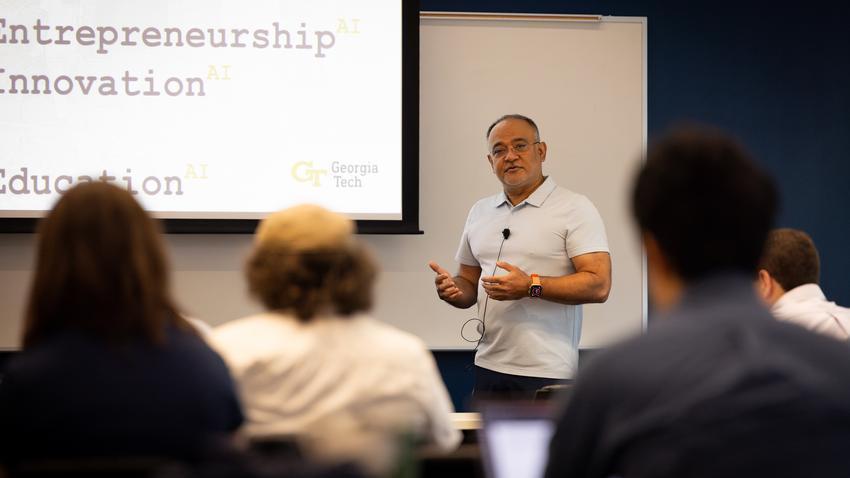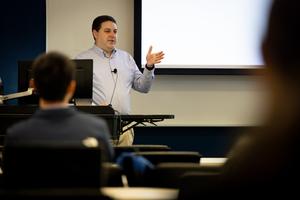
Workshop Explores Sustainable Software in Research
In software development, project sustainability is paramount for ensuring long-term viability and continued growth. Sustainable software allows research projects to evolve with new technology and enables project maintainers to sustain interest in growing and transforming the software over time.
A recent workshop hosted on April 3 by Georgia Tech’s Open Source Programs Office (OSPO) and the Center for Scientific Software Engineering (SSE) gave researchers and students the opportunity to learn about available sustainable software resources.
The Sustainable Software in Academia workshop featured Georgia Tech research scientists and software engineers who shared the latest information on developing and maintaining sustainable software for research projects.
Jeffrey Young, OSPO director, and SSE co-director, said the workshop aligned with each organization’s goals of creating positive change for the research enterprise at Georgia Tech and in the broader academic community.

“Resources like the OSPO are explicitly meant to be a central point for researchers who may not know where to ask for help with their open-source projects. We strongly encourage all attendees, along with Georgia Tech researchers and students, to review the topics discussed and reach out to us with questions,” said Young.
According to Young, a senior research scientist in the School of Computer Science, the workshop provided a “from the ground up” exploration of the resources of the two centers. It also focused on how the centers can improve the quality of scientific software or open-source projects for researchers.
Along with discussions of software engineering best practices, College of Computing Senior Associate Dean and Professor Irfan Essa and Suresh Marru, director of the Center for Artificial Intelligence in Science and Engineering (ARTISAN), covered AI-related efforts at the Institute level. Marru introduced the ARTISAN center, which brings new capabilities to Georgia Tech researchers to develop advanced AI science workflows using open-source tools.
A large portion of the workshop was dedicated to best practices for software engineering of scientific research projects. Dave Brownell, head of engineering for SSE, shared some tips on how to incorporate software engineering into research projects. These insights included the use of continuous integration and related tools to maintain the code quality of research projects and developing a shared vision for how research software should be built and maintained long-term. A panel forum with SSE research software engineers created an open discussion of best practices.
“The discussion was lively with a special focus on how Georgia Tech can better support quality software projects as well as a long, sustained lifecycle for open-source projects,” said Young.
As computing revolutionizes research in science and engineering disciplines and drives industry innovation, Georgia Tech leads the way, ranking as a top-tier destination for undergraduate computer science (CS) education. Read more about the college's commitment:… https://t.co/9e5udNwuuD pic.twitter.com/MZ6KU9gpF3
— Georgia Tech Computing (@gtcomputing) September 24, 2024


